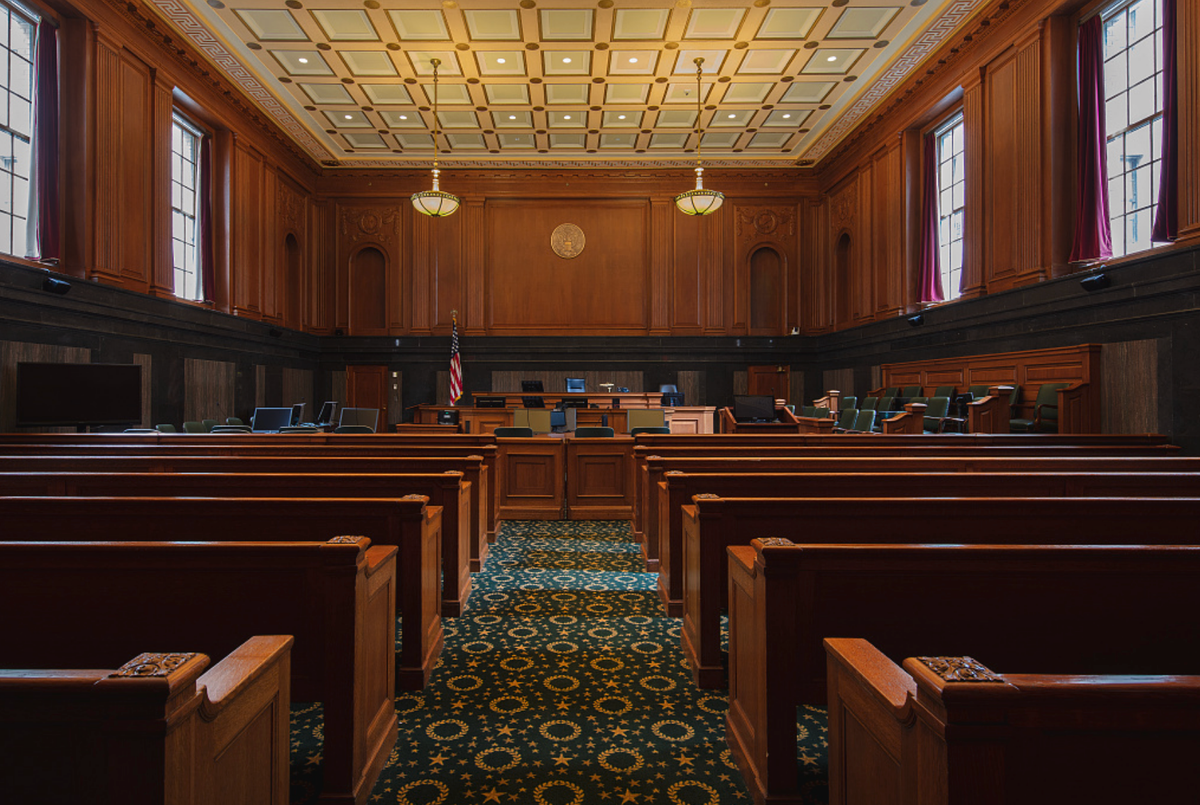In Öztürk Case, Groups Urge Appeals Court To Uphold Rights Of Noncitizen Journalists
Several press freedom and First Amendment groups have urged a United States appeals court to side with Tufts University graduate student Rümeysa Öztürk and noncitizen journalists.

The following is an exclusive article for paid subscribers. Thank you for supporting The Dissenter.
Several press freedom and First Amendment groups have urged a United States appeals court to side with Tufts University graduate student Rümeysa Öztürk and uphold the courts' authority to review "unconstitutional detention" claims brought by noncitizens.
On March 25, Rümeysa Öztürk was on the streets of Somerville, Massachusetts, near Boston when Immigration and Customs Enforcement (ICE) agents abducted her from the streets. It was widely reported that she was detained because she co-authored an op-ed in the university’s student newspaper.
The op-ed criticized university administrators for not engaging with students, who sought divestment from companies with ties to Israel after the Israeli government engaged in the "deliberate starvation and indiscriminate slaughter of Palestinian civilians and plausible genocide.”
Öztürk was held in an ICE women’s prison in Louisiana for a little over a month until a U.S. court ordered her release in May.
But prior to her release, President Donald Trump’s administration appealed a lower court decision that paved the way for Öztürk’s return to Massachusetts. The government insisted the courts had no authority to review her claim of unlawful detention.
The Reporters Committee for Freedom of the Press (RCFP), along with the Committee to Protect Journalists (CPJ), PEN America, Reporters Without Borders (RSF), and the Student Press Law Center submitted a brief to the U.S. Court of Appeals for the Second Circuit.
“All indications” are that Öztürk spent more than a month in immigrant detention in Louisiana and had her student visa revoked because she “co-bylined an op-ed in her university’s newspaper,” the press freedom groups declared. Her detention was based “in part and possibly entirely” on “what is indisputably journalistic activity.”
A district court should be able to quickly review a habeas petition, which is essentially a person’s challenge to detention or imprisonment that forces the government to produce that individual in court.
“Anything less would allow the executive branch to silence disfavored noncitizen journalists through an unconstitutional detention, without any review of its constitutionality until a final removal order is entered and a petition for review can be filed,” the press freedom groups argued.
The press freedom groups also contended that the “absence of speedy judicial review would mean that specific news beats—immigration enforcement, for instance—could be chilled more than others. That presents a particularly insidious form of viewpoint discrimination.”
That is exactly what is happening in the case of Spanish-language journalist Mario Guevara, who Immigration and Customs Enforcement (ICE) has detained in solitary confinement conditions for two months. In fact, in August the ACLU filed a habeas claim on behalf of Guevara to end his unconstitutional detention.
Moreover, the groups invited the appeals court to recognize that the “underlying provisions” in the Immigration and Nationality Act (INA) referred to by the government to justify their position are unconstitutional because officials should not be able to “seek the removal of non-citizen journalists based on reporting that the government says could harm ‘foreign policy’ or that the Secretary State otherwise perceives as critical or unfavorable.”
The Foundation for Individual Rights and Expression (FIRE), the National Coalition Against Censorship, the First Amendment Lawyers Association, and PEN America (again) asked the appeals court to more broadly recognize the implications for freedom of speech. (Two civil liberties organizations, the CATO Institute and the Rutherford Institute, also supported the brief.)
As the groups outlined, Secretary of State Marco Rubio arrested and detained Öztürk “not because the government claims she committed a crime or other deportable offense, but for the seemingly sole reason that her expression—an op-ed in a student newspaper—stirred the Trump administration to anger.”
“The Secretary argues his discretionary power over lawfully present international students includes the authority to order their arrest, detention, and deportation for even protected speech. It does not,” the First Amendment groups added.
The groups referred to Bridges v. California, a 1941 U.S. Supreme Court decision in which a 5-4 majority upheld the free speech rights of Harry Bridges, the leader of the International Longshoreman’s Association (ILA).
Bridges, who was born in Australia, had a case pending before the Superior Court of Los Angeles County. He sent a telegram to Secretary of Labor Frances Perkins that implied the longshoreman’s union would go on strike if the Superior Court ruled against him. So, the Superior Court found Bridges in contempt of court. The Los Angeles Times, which published several editorials about the case, was also held in contempt. Both faced fines.
“[The] First Amendment does not speak equivocally. It prohibits any law ‘abridging the freedom of speech, or of the press.’ It must be taken as a command of the broadest scope that explicit language, read in the context of a liberty-loving society, will allow,” Justice Hugo L. Black declared.
On behalf of Stanford University's student newspaper and two unnamed students, FIRE sued Rubio and Homeland Security Secretary Kristi Noem in August for their role in seeking to deport "any lawfully present noncitizen for speech the government deems anti-American or anti-Israel."
The press freedom groups made clear that U.S. courts have “rejected viewpoint discrimination as antithetical to our nation’s First Amendment and it is virtually never permitted. Yet that is what the government does when it uses its immigration enforcement authorities to thumb the scale of public discourse in its own favor.”
“The viewpoint-discrimination facilitated by the government’s interpretation of the INA applied to Ms. Öztürk’s op-ed is precisely the kind of ‘poison’ the Constitution forbids.”




Comments ()